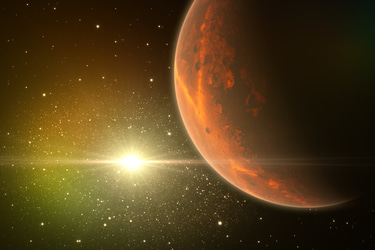The Anthropic Principle: A Universe Tailored for Life


The Essence of the Anthropic Principle
The anthropic principle is a captivating concept in cosmology that suggests the universe exhibits characteristics finely tuned for the emergence and sustenance of life. This principle challenges us to consider not just how the universe operates, but why it is accessible to beings capable of observation, such as humans. At its core, the anthropic principle posits that our presence in this universe is not a mere coincidence but rather a consequence of specific physical laws and constants that govern the cosmos.
Fine-Tuning: The Conditions for Life
The universe, as we perceive it, is governed by a complex interplay of fundamental forces and constants. These parameters – from gravitational forces to electromagnetic interactions – present a striking level of fine-tuning that allows for the existence of stars, planets, and ultimately life. If even minor variations in these constants had occurred, the universe as we know it could not exist. For example, if the strong nuclear force were slightly weaker, atomic nuclei would not hold together, preventing the formation of atoms necessary for life. This fine-tuning aspect of the anthropic principle raises profound questions regarding the nature of the universe and the conditions necessary for life to thrive.
Philosophical Implications and Debates
The anthropic principle invites a wealth of philosophical discussion. It has ignited debates among scientists, philosophers, and theologians regarding the implications of a universe that seems tailored for life. Some proponents argue that our existence suggests a purpose or design within the cosmos, while others contend that the anthropic principle is merely an observational bias—suggesting that we can only observe a universe conducive to life because we are here to observe it.
This perspective leads to the multiverse theory, postulating that there may be countless other universes with different physical laws and constants. In this scenario, we find ourselves in a universe that supports life simply because we are lucky enough to inhabit it. Critics of this notion question how the multiverse theory can be tested or observed, which sparks further exploration into both scientific methodology and philosophical implications.
As we delve into the intricacies of the anthropic principle, it becomes clear that our observations of the universe—its laws, properties, and fine-tuning—raise essential questions about existence itself. Whether viewed through a scientific, philosophical, or theological lens, the anthropic principle forms a bridge linking humanity’s quest for knowledge with the vast mysteries of the cosmos.
